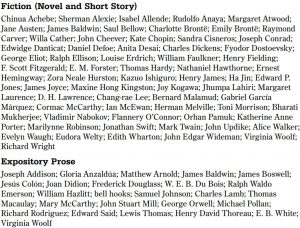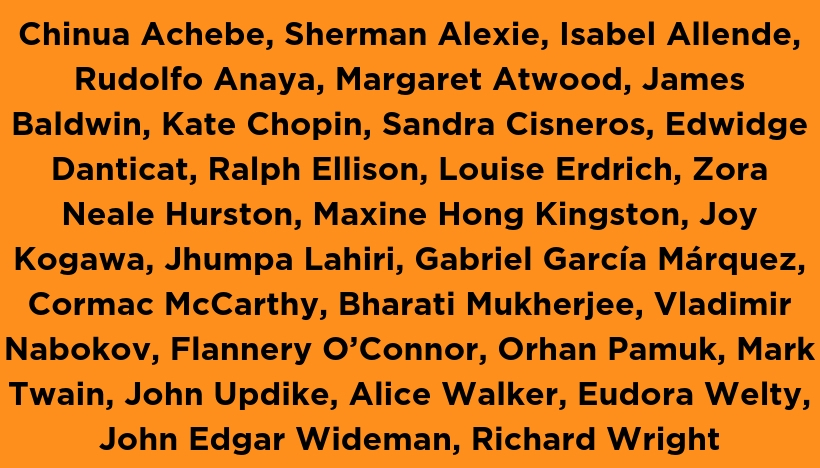Today a radio commentator remarked, “We live in the age of fear when it comes to our children. We’re afraid if we leave them alone for even a minute, something bad will happen.” This fear seems to spill over into what students are reading in school, and AP courses are no exception.
Texts used in AP Literature and Composition courses have been and continue to be challenged. These include Beloved, Fun Home, The Kite Runner, Invisible Man, Song of Solomon, The House of the Spirits, and many more. And, many of the authors on the College Board’s list of Representative Authors (pp. 10–11) for the AP Lit course can also be found on ALA’s annual lists of the top ten challenged books.

The parental “fear” named by the commentator seems to be at the heart of the disconnect between parents and teachers and The College Board’s requirements for the AP Literature and Composition course.
- While the course “enables students to experience college level courses when in high school,” challengers decry the “maturity” of the texts, insisting they are too mature for their students.
- While The College Board explicitly describes the readings for the course as “diverse, including issues that might, from a particular cultural viewpoint, be considered controversial, including references to ethnicities, nationalities, religions, races, dialects, gender, or class, [which] are often represented artistically in works of literature,” parents who complain about the texts often base their complaints on these very issues, usually misunderstood outside the context of the text or the course.
Calming fearful, and oft-times quite opinionated, parents is no small task, but when dealing with challenges to the AP Lit course, you might remind the challengers first that the course is an optional, college level class that requires a maturity of thought and study from the students. In addition,
- AP courses are meant to be the “most rigorous course work available.”
- Students who take these courses are to be “willing and academically prepared” and to “read deliberately and, [take] time to understand a work’s complexity, to absorb its richness of meaning, and to analyze how that meaning is embodied in literary form.”
- “AP students should have the maturity, skill and the will to seek the larger meaning through thoughtful research.”
- “Each course concludes with a college-level assessment scored by college and university faculty as well as experienced AP teachers.”
- While “each school implements its own curriculum, AP course syllabi are only approved after successfully completing a course audit by college faculty.”

